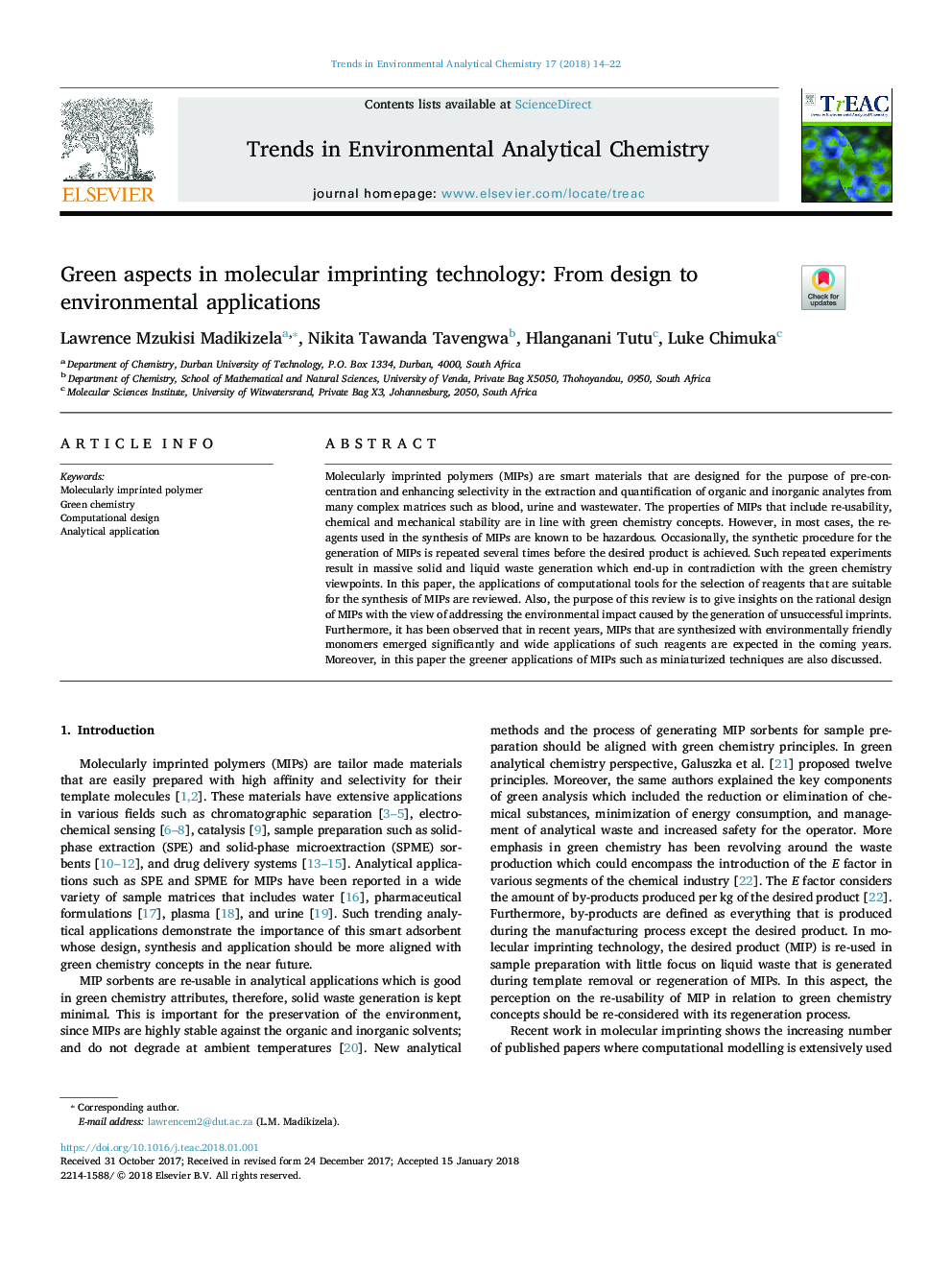| Article ID | Journal | Published Year | Pages | File Type |
|---|---|---|---|---|
| 7690367 | Trends in Environmental Analytical Chemistry | 2018 | 9 Pages |
Abstract
Molecularly imprinted polymers (MIPs) are smart materials that are designed for the purpose of pre-concentration and enhancing selectivity in the extraction and quantification of organic and inorganic analytes from many complex matrices such as blood, urine and wastewater. The properties of MIPs that include re-usability, chemical and mechanical stability are in line with green chemistry concepts. However, in most cases, the reagents used in the synthesis of MIPs are known to be hazardous. Occasionally, the synthetic procedure for the generation of MIPs is repeated several times before the desired product is achieved. Such repeated experiments result in massive solid and liquid waste generation which end-up in contradiction with the green chemistry viewpoints. In this paper, the applications of computational tools for the selection of reagents that are suitable for the synthesis of MIPs are reviewed. Also, the purpose of this review is to give insights on the rational design of MIPs with the view of addressing the environmental impact caused by the generation of unsuccessful imprints. Furthermore, it has been observed that in recent years, MIPs that are synthesized with environmentally friendly monomers emerged significantly and wide applications of such reagents are expected in the coming years. Moreover, in this paper the greener applications of MIPs such as miniaturized techniques are also discussed.
Related Topics
Physical Sciences and Engineering
Chemistry
Analytical Chemistry
Authors
Lawrence Mzukisi Madikizela, Nikita Tawanda Tavengwa, Hlanganani Tutu, Luke Chimuka,
